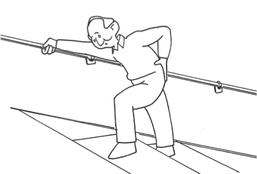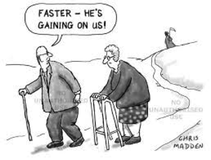 Are My Elderly Parent’s Coping? As our parents move in to Shakespeare’s ‘Sixth stage of man’ many of us in our middle age are busy with our careers and bringing up children. We often take our parents for granted and forget they are ageing. If we see them regularly, we may not notice subtle changes or if we live elsewhere and rarely see them, we may get a shock at their decline between visits. Compounding this, most parents don't want to be a 'bother' and aren't good at telling their adult children they need help. It can be a shock to see our parents slowing down and not coping. We may have no idea how to deal with their changing state. Some of us respond by ignoring or minimising the situation, while others will behave more like a bossy parent. More often than not, even with the best intentions, we don't know when and how to respond. In my experience with my own mother and observing others it's best to start talking with your parents early in their retirement, and keep talking about all the different scenarios that may happen as they age, good and bad. For each scenario, find out the options for care or help and discuss these with your parents. Most importantly, find out what they want to happen in each case. It may help to start by arranging a power of attorney, and who will be responsible for their health, welfare and finances should they become incapable of making those decisions. A change in the ability to manage one’s affairs could happen suddenly after a health event, like a stroke, or slowly as a result of dementia. It’s best to be prepared. Become informed with your parents on how ageing may affect them and how they may look after themselves to extend their independence and enjoyment of life. There is plenty of information on the Internet to help with this. I suggest you look at local reputable resources. Regularly check in with your parents, and ask them if there is anything they are struggling with. If so, discuss alternative ways of managing the problem area. Be observant, and if you notice there has been a change in, say, the standard of house keeping, tactfully discuss this with them. Again, it is helpful if you've discussed at an earlier time how to manage these changes and how best to broach the subjects with them.  Changes you may notice include, a drop in:
It is well worth having these hard conversations with your ageing parents as it helps take some of the stress out of their decline and allows you to more readily enjoy their final years. If your parents are struggling at home our friendly therapists may be able to help them maintain their independence. Just contact us at Therapy Professionals Ph: 03 3775280 Email: [email protected] ‘The sixth age shifts Into the lean and slipper’d pantaloon, With spectacles on nose and pouch on side; His youthful hose, well sav’d, a world too wide For his shrunk shank; and his big manly voice, Turning again toward childish treble, pipes And whistles in his sound. Last scene of all, That ends this strange eventful history, Is second childishness and mere oblivion; Sans teeth, sans eyes, sans taste, sans everything.’ William Shakespeare – As you like it. “The seven stages of man.” Comments are closed.
|
AuthorShonagh O'Hagan Archives
July 2024
|


 RSS Feed
RSS Feed